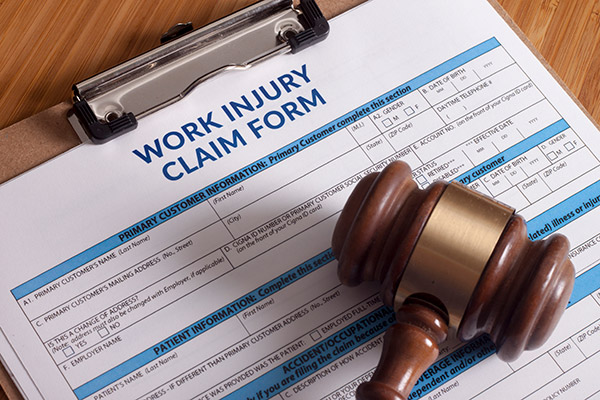Injuries in the workplace are an unfortunate reality for many employees. As an employer, it is your duty to ensure that your employees are safe and protected while on the job. However, accidents can still happen, and when they do, navigating the workers’ compensation system can be a complex and confusing process. That’s why having a comprehensive workcover payout guide can be invaluable in helping both employers and employees understand their rights and responsibilities in such situations.
The workers’ compensation system is designed to help injured workers with financial support and medical treatment, but it can be difficult to understand the process and requirements involved. As an employer, it is important to have a clear understanding of the workers’ compensation system so that you can provide your injured employees with the support they need.
This guide will equip you with the knowledge and tools to navigate the workers’ compensation system effectively, from reporting an injury to managing the claims process. It will also provide insight into the roles and responsibilities of both the employer and employee throughout the process.
Table of Contents
Reporting the Injury Promptly
When an employee is injured on the job, it is crucial for them to report the injury promptly. Delaying the reporting of the injury may result in a loss of benefits or a denial of the claim. It is important to have a clear protocol in place for employees to report their injuries, including who they should report to and what information they need to provide.
Employers should encourage their employees to report all injuries, no matter how minor they may seem, as they could potentially lead to more serious conditions in the future. Additionally, prompt reporting allows for a timely investigation of the incident, which can help prevent similar accidents from occurring in the future.
Finding the Right Medical Provider
When an employee is injured on the job, providing timely and effective medical care is crucial to their recovery and return to work. However, finding the right medical provider can be a daunting task for injured workers and employers alike. It is important to choose a medical provider who is familiar with the workers’ compensation system and has experience treating work-related injuries.
In addition, the medical provider should be willing to communicate with the injured worker, their employer, and the workers’ compensation insurance carrier to ensure that the injured worker receives appropriate care and that the necessary paperwork is completed in a timely manner. To find the right medical provider for your injured worker, consider asking for referrals from other employers in your industry, reaching out to local workers’ compensation clinics, or consulting with your workers’ compensation insurance carrier for a list of approved providers. By taking the time to find the right medical provider, you can help ensure that your injured worker receives the care they need to recover and return to work as quickly and safely as possible.
Documenting the Injury and Treatment
When an employee is injured on the job, it is essential to document the injury and treatment thoroughly. This documentation is critical in establishing the validity of the injury and ensuring that the employee receives the appropriate medical care. When documenting the injury, it is essential to include the date, time, and location of the incident, as well as a description of the injury and how it occurred.
In addition, it is crucial to include any witness statements or other relevant information that may support the employee’s claim. When documenting the treatment, it is essential to include the names and contact information of all medical providers, the dates of all visits, and a description of the treatment provided. This documentation is critical in ensuring that the employee receives the proper medical care and is compensated appropriately. It is also important to maintain a copy of all documentation for your records and to provide a copy to the injured employee.
Communicating With the Insurance Company
When filing a claim, it is important to understand how to communicate effectively with the insurance company to ensure that your claim is being processed correctly and in a timely manner. It is recommended to keep a detailed record of all communications with the insurance company, including emails, phone calls, and letters. When speaking with an insurance representative, it is important to be clear and concise about the details of your injury, the medical treatment you have received, and any other relevant information.
It is also important to be aware of any deadlines or requirements set by the insurance company and to provide any necessary information promptly. By effectively communicating with the insurance company, injured workers can help ensure that their claims are processed smoothly and that they receive the compensation and benefits they are entitled to.
Navigating the Appeals Process
It is important to understand that if your claim has been denied, you have the right to appeal the decision. The appeals process typically involves several steps, including submitting a written request for reconsideration, attending a hearing, and presenting evidence to support your case. It is critical to have a thorough understanding of the appeals process and to be prepared to argue your case effectively.
This may involve obtaining medical evidence, consulting with legal counsel, and gathering any documentation that may support your claim. Understanding the appeals process can help injured workers secure the compensation they deserve and ensure that their rights are protected.
Understanding Your Rights and Responsibilities
As an injured worker, you have the right to report your injury to your employer and seek medical treatment. You also have the right to file a claim for workers’ compensation benefits if your injury or illness is work-related. It is important to understand that you must report your injury within a certain time frame to be eligible for benefits.
Additionally, you have the responsibility to provide accurate information about your injury and cooperate with your employer, healthcare providers, and the workers’ compensation insurance company throughout the claims process. It is crucial to familiarize yourself with your state’s workers’ compensation laws and regulations to ensure you are aware of your rights and responsibilities and can navigate the system effectively.
Working With an Experienced Attorney
An experienced attorney can help injured workers understand their rights, complete required paperwork, and ensure that all necessary medical documentation is provided to support their claim. Additionally, an attorney can advocate on behalf of the injured worker when dealing with employers, insurers, and the workers’ compensation board, helping to ensure that they receive the maximum benefits to which they are entitled under the law.
It is important to choose an attorney who specializes in workers’ compensation and has a proven track record of success in advocating for injured workers. With the right legal representation, injured workers can feel confident in navigating the complex and often overwhelming workers’ compensation system.
Conclusion
Navigating the workers’ compensation system can be a daunting task for injured workers. It is important to understand your rights and responsibilities, as well as the resources available to you. Working with experienced professionals such as attorneys and medical providers can greatly assist in achieving a favorable outcome. While the process may be complex, taking the time to educate yourself on the system can help ensure that you receive the support and compensation you are entitled to after a workplace injury.





